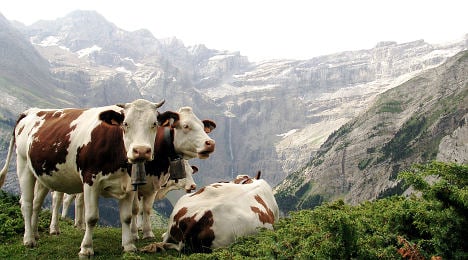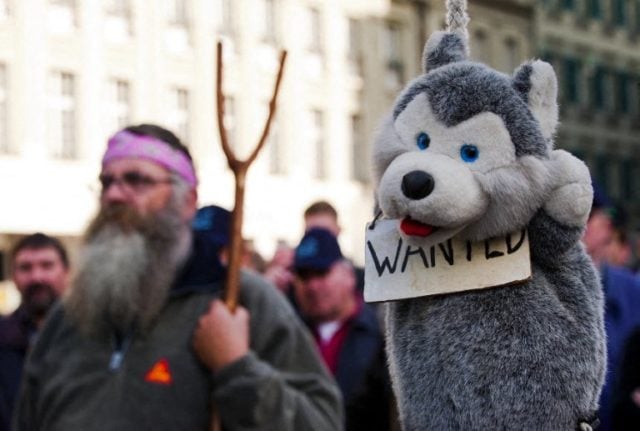Government agricultural subsidies in Switzerland accounted for 57 percent of farm income in 2012, up from around 55 percent in the previous year, said the report released this week.
That was topped only by Norway, where farmers raked in subsidies worth 63 percent of their income, an increase from 59 percent in 2011, the survey of 47 countries said.
The governments of both Switzerland and Norway sought to offset the impact of strong currencies but they were not alone in boosting support for farmers.
After bottoming out in 2011, the OECD said support for agriculture in the world’s leading farming nations rose last year, bucking a long-term downward trend.
The Swiss subsidies were well above the OECD average of 17 percent in 2012, up from 15 percent the previous year.
Ken Ash, the Trade and Agriculture Director of the OECD, which groups together 34 of the world's richest countries, called for a reduction in subsidies worldwide.
"The time is ripe for governments to credibly commit to wide-ranging farm support reform," he said in a news release.
"Meeting the needs of a growing and richer world population requires a shift away from the distorting and wasteful policies of the past."
The report, which was published on Wednesday, said that countries such as Switzerland, which already heavily subsidise farmers, had generally increased subsidies over the last year, while countries with lower ones had not.
Switzerland ranked ahead of Japan (56 percent) and Korea (54 percent).
The report highlights sharp divergences in support levels, with subsidies as low as seven percent in the US, three percent in Australia and Chile, and one percent in New Zealand.
Swiss policy-makers say subsidies guarantee an income for Swiss farmers that is comparable to other sectors, although critics say this policy stifles innovation.
Defenders of the subsidies say that they serve other purposes, such as ensuring maintenance of the countryside, an important factor for a country with a major tourism sector.



 Please whitelist us to continue reading.
Please whitelist us to continue reading.
Member comments